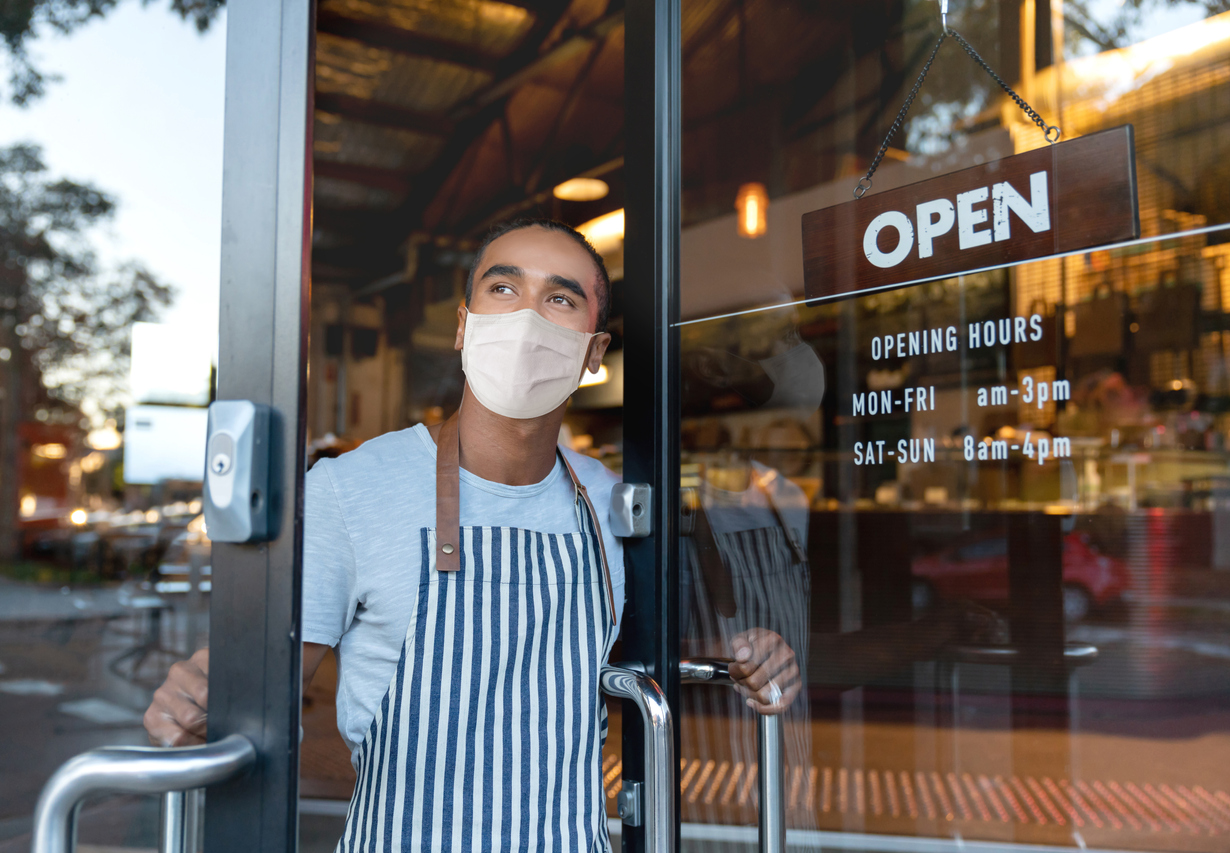The Latest Sleep Research: How Are We Sleeping During the Pandemic?

Recent studies have found that the COVID-19 pandemic has had a varied influence on people’s sleep. Some have found small, unexpected benefits of the lockdown. Specifically, the quality of sleep in people with clinical insomnia as well as in adolescents has shown improvement.
Study 1:
A group of Dutch researchers (Kocevska, Blanken, van Someren, and Rösler, 2020) recruited 667 participants from the Netherlands Sleep Registry to investigate possible changes in sleep during the pandemic. Participants retrospectively rated their sleep quality from before the pandemic using the Insomnia Severity Index (ISI). The researchers intentionally included approximately equal numbers of good sleepers, people with mild sleep complaints, and people with clinical insomnia according to the ISI in their sample to assess how the pandemic may be affecting people with different pre-pandemic sleep quality.
Starting on March 15, 2020, participants reported on their sleep weekly. During the lockdown, a quarter of the participants had a significant change in their sleep quality; however, the direction of change depended on their pre-pandemic sleep quality. The lockdown appears to have worsened sleep in people who were previously good sleepers, but one in four people who initially had clinical insomnia saw improvements in their sleep. Given the pandemic’s overall negative impact on mental health, researchers were surprised to find a positive benefit for people with insomnia.
For further understanding, the researchers also looked at how sleep quality was related to negative feelings and emotions. The changes in self-reported sleep quality during the lockdown compared to pre-pandemic were significantly linked with changes in negative feelings and emotions, as well as worry. People whose sleep worsened during the pandemic experienced more negative emotions during the lockdown. Individuals with pre-pandemic insomnia who reported improvements in their sleep were shown to have fewer negative emotions during the lockdown. In other words, being positive was related to better sleep quality over time.
Study 2:
The American Academy of Sleep Medicine recommends that teenagers sleep 8 to 10 hours each night. Unfortunately, due to demanding academic and social schedules, many adolescents do not get the appropriate amount of sleep. Experts have proposed delaying school start times in order to combat the resulting sleep deprivation. This has been a historically challenging change to implement (Watson et al., 2017); however, the COVID-19 pandemic has naturally facilitated this change in some places due to distance learning.
Once schools began moving to remote learning, students’ schedules loosened as there was less need to wake at a specific time to travel to school. This “natural experiment” as Gruber, Saha, Somerville, Boursier, and Wise (2020) called it, provided researchers the opportunity to examine how later school start times might influence sleep behaviors in typically developing adolescents.
The researchers conducted one-on-one, semi-structured phone interviews with 45 adolescents between late April and early June of 2020. They asked the teens about their habits both before and during the pandemic related to sleep schedules, sleep duration, sleep quality, daytime sleepiness, and methods of waking up.
Most of the participants stated that their sleep improved in quality and/or duration during the pandemic. They also reported that their sleep schedules shifted by about 2 hours such that they went to bed later and woke up later. More than half of the participants described being sleepy on school days before the pandemic and associated this with their need to wake up early to get ready for school while also getting less sleep. About 75% of the participants said that during the pandemic they were not sleepy during the day and that they were getting more sleep. Most of the participants woke up without an alarm during the pandemic. Some reasons that the students provided for the improvements were that they did not have to wake up early and had less school-related stress.
The Pandemic and Sleep:
Current research suggests that there may be at least one positive aspect of the pandemic: Sleep! The sleep improvements seen in people with pre-pandemic insomnia may help inform future research on treating clinical sleep disorders. Additionally, the change in school schedule has provided a natural and widescale context to further show the benefits of later start times, which can inform school scheduling decisions.
Article 1:
Kocevska, D., Blanken, T. F., van Someren, E. J. W. V., & Rösler, L. (2020). Sleep quality during the COVID-19 pandemic: Not one size fits all. Sleep Medicine, 76, 86-88. doi: 10.1016/j.sleep.2020.09.029
Article 2:
Gruber, R., Saha, S., Somerville, G., Boursier, J., & Wise, M. S. (2020). The impact of COVID-19 related school shutdown on sleep in adolescents: A natural experiment. Sleep Medicine, 76, 33-35. doi: 10.1016/j.sleep.2020.09.015
Other references:
Leone, M. J., Sigman, M. & Golombek, D. A. (2020). Effects of lockdown on human sleep and chronotype during the COVID-19 pandemic. Current Biology, 30(16). R930-R931. doi: 10.1016/j.cub.202.07.015
Watson, N. F., Martin, J. L., Wise, M. S., Carden, K. A., Kirsch, D. B., Kristo, D. A., Malhotra, R. K., Olson, E. J., Ramar, K., Rosen, I. M., Rowley, J. A., Weaver, T. E., Chervin, R. D. (2017). Delaying middle school and high school start times promotes student health and performance: An American Academy of Sleep Medicine position statement. J Clin Sleep Med., 13(4). 623–625. doi: 10.5664/jcsm.6558